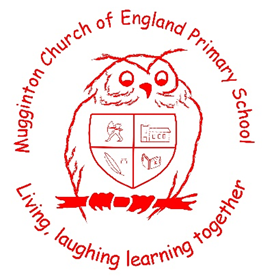
History
We believe that history matters – understanding and thinking about our past helps us to understand what makes us human. We want to explore and connect the past, present and think about the future!
A core aim of the National Curriculum for history is to support children’s ability to ‘gain a coherent knowledge and understanding of Britain’s past and that of the wider world. It should inspire pupils’ curiosity to know more about the past.’ We believe that coherence is best achieved when children see the links, connections and inter-relationships across periods, themes and events.
We aim to offer our children a history curriculum which is an open-ended framework full of possibilities; which allows children to ask questions, look at different historical sources, visit historical sites, write creatively and participate in drama activities.
The Historical Association’s Alf Wilkinson argued that we look at ‘the big picture of history… of making sense of how it all fits together.’ This is a lot more than Arnold Toynbee’s famously ironic definition: ‘History is just one damn thing after another.’ At Mugginton, we see the role of the teacher as similar to a narrator in a story, helping children to understand the characters, settings, and events, and make more sense of the abstract historical world.
History Lessons at Mugginton
As with so much, learning about history is about making connections. In our infant class we work hard to help the children to identify similarities and differences between ways of life in different periods and compare this with their own lives. Read our History Policy here.
This can be accomplished by using timelines to organise children’s understanding of when in the past they are learning about, and how it sits alongside what they have learned previously. Once the children can identify this, the teacher can support them to understand a number of core ideas: why life was different; what technology would have impacted life (for example, no fire engines in the Great Fire of London); and why making comparisons is helpful when learning history.
Within History, pupils will develop a deep understanding of key concepts and second order concepts as they enter Key Stage Two. These key concepts have been carefully considered and identified as the core knowledge and skills to provide lenses through which to consider different aspects of history. The key concepts are revisited and developed as the pupils move through the school to ensure the understanding of community, conflict, exploration and hierarchy are firmly embedded within the long term memory. These key concepts compliment work carried out across the school in line with national curriculum expectations, our location and school values.
Key concepts: A range of these concepts are explored through each historical unit and provide lenses through which to consider different aspects of history.
Community and culture (architecture, art, civilisation, communication, economy, inspiration, myth, nation, religion, settlement, story, trade)
Conflict and disaster (conquest, liberation, occupation, military, peace, plague, surrender, treaty, war)
Exploration and invention (discovery, migration, navigation, progress, tools)
Hierarchy and power (country, democracy, empire, equality, government, law, monarchy, oppression, parliament, politics, poverty, slavery)
In addition to the key concepts, our subject leader has identified subject specific second order concepts. These can be used across all aspects of History to organise the substantive knowledge taught.
Second order concepts: These are historical skills that are taught and applied through each unit of history. These skills build progressively as pupils move through the school.
Chronology
Similarity and difference
Cause and consequence
Continuity and change
Significance
Historical enquiry (source material, artefacts, fact and opinion)
Written and oral expression: (Using historical terminology, presenting findings in variety of ways, making comparisons and links, explanations, awareness of audience, using evidence to support statements)

Further advice is available here:






